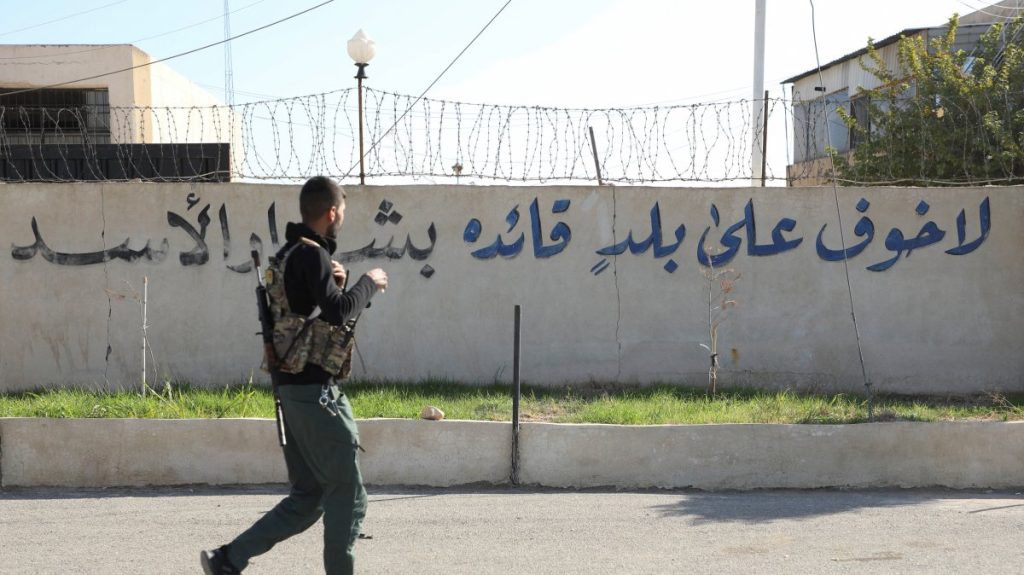In October this year, Nationalist Movement Party (MHP) leader Devlet Bahçeli made a pioneering yet striking call on the PKK’s jailed leader, Abdullah Öcalan, to come forth and announce the end of PKK terrorism. However, more than two months later, the process seems to have stalled.
Although initially, all significant parties were on board, supporting Bahçeli’s call, silence prevailed on one side while the calls became less bold. Let us have a look at the developments that have taken place since. The pro-PKK Peoples’ Equality and Democracy Party (DEM Party) – one of the most important actors in this process – has displayed mixed signals. Shortly after the first reports, the DEM Party on Oct. 22 published a declaration that mirrored PKK rhetoric, saying that the Justice and Development Party (AK Party), along with the MHP, was “instrumentalizing” peace. It also attacked the ruling coalition by saying it pursued an “expansionist and colonialist” policy in the Middle East despite the positive atmosphere of the chance for peace after 40 years of terrorism in Türkiye.
In return, President Recep Tayyip Erdoğan, though supporting the process together with Bahçeli, has doubled down on the PKK and its Syrian wing, YPG.
Pointing to the terrorist attack in the capital Ankara just one day after Bahçeli’s historic speech, security sources told Daily Sabah: “Silence prevails mostly. The PKK and its wings must first come to an agreement on this issue between themselves. (PKK ringleader) Duran Kalkan opposed Öcalan’s words.” The sources were referring to Öcalan’s announcement saying, “If conditions are met, I have the theoretical and practical power to draw this process from the ground of conflict and violence to legal and political ground.” Among the PKK leadership in Iraq, the belief that those on the ground shouldered the fight for years while Öcalan remained in prison and that therefore they have the say instead of the imprisoned leader is dominant, the sources added.
Bahçeli has also reduced the tone of the call. In the party’s last group meeting earlier this month, he said: “It is wrong, an undemocratic and unlawful distortion, that the DEM Party, which is disturbed by the uprooting of the terrorist organization that nestled right next to our borders, has not yet decided where to stand and has constantly refrained from distancing itself from terrorism.”
Despite being of two minds, the process is slowly going on – though in a direction that nobody, not even the Turkish government, can forecast. In a first in years, two DEM Party deputies are expected to visit Öcalan this week. The visit will likely result in a new important announcement regarding the process.
The Syria file: New realities
As Bahçeli said, the terrorist organization “nestled right next to our borders,” namely the PKK/YPG, is facing a new reality with the fall of Assad and the possibility of an inclusive new government that aims to ensure the country’s territorial integrity.
Türkiye has laid down its conditions: The YPG will be dissolved. It will lay down arms. Foreigners from Türkiye, Iran, Iraq and Europe, namely non-Syrians, who were fighting in the forces mixed with the PKK/YPG must leave the country. Next, the YPG’s leading cadre, even if Syrian, will leave the country. Non-PKK elements will be able to continue their lives in the new Syria.
“The YPG ‘identity’ will not be accepted anymore. The rest (of the forces) that have no connection with the PKK terrorist organization itself could be integrated into local elements such as a police force,” the sources elaborated.
“The new Syrian administration must present Türkiye with a solution on this issue,” they added, indicating that Ankara will allow the transition government to take action first instead of initially becoming directly involved.
In a Reuters interview last week, YPG leader Ferhat Abdi Şahin, code-named “Mazloum Kobani,” acknowledged the presence of PKK fighters in Syria for the first time. He claimed they had “helped” battle Daesh and would “return home” if a total “cease-fire” was agreed upon with Ankara. Indeed, Şahin’s statements since Türkiye’s calls to eradicate PKK elements in the country have been forthcoming, as he said that the group is attempting to negotiate with the new Syrian administration.
On Sunday, al-Sharaa, long known by his nom de guerre Abu Mohammed al-Golani, said the new authorities would “absolutely not allow there to be weapons in the country outside state control.” That also applies to the PKK/YPG, he said.
Last week, the military chief of the new government told Agence France-Presse (AFP) that the PKK/YPG-held areas would be integrated under the new leadership, and that “Syria will not be divided.”
Currently, one of the PKK/YPG’s claims to legitimacy was the U.S. “insistence” that it is needed to fight Daesh and manage the Al-Hol camp where Daesh militants and their families are being held. “We told the U.S. that this entity is not needed anymore, as we have done before. Ankara can task its own military forces for the duty if necessary. And for the first time in a while, Washington is more positive on Türkiye’s approaches on the issue,” the sources added.
One of the major factors influencing the upcoming process of disintegrating the PKK/YPG and integrating the non-PKK factions into the new Syrian reality will be the new U.S. administration under Donald Trump taking office on Jan. 20. Experts and people close to the process also argue that a solution to the PKK/YPG issue would help alienate the PKK cadre in Iraq’s Qandil, possibly weakening its hand and leading it to accept Türkiye’s conditions for peace.
The stance of the Kurdish community in Türkiye, the fault lines between Öcalan-Qandil, the peaceful dissolution of the PKK/YPG, the new U.S. administration’s Syria policy, the influences of Iran and Russia as well as the capability of the new Syrian administration in reaching inclusivity in all areas of the new government will be decisive in how the region’s future will be shaped.


